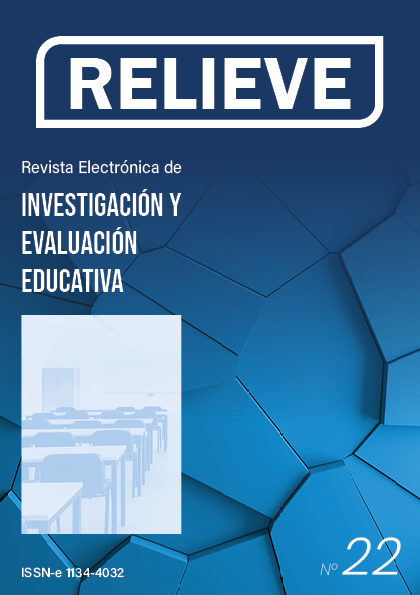Correcting for Scale Usage Differences among Latin American Countries, Portugal, and Spain in PISA
DOI:
https://doi.org/10.7203/relieve.22.1.8282Keywords:
Extreme response style, overclaiming, anchoring vignettes, comparability, validity.Abstract
This paper investigated the effects of corrections for scale usage preference in seven Latin American countries, Portugal and Spain in student self-reports in the 2012 Programme for International Student Assessment (PISA). These targeted countries tend to show a strong tendency of expressing strong opinions and self-enhancement, which can pose serious validity threats in cross-cultural comparisons of self-reports. We examined to what extent score corrections, that have been proposed, would change the patterning of the cross-cultural differences. We corrected for the scale usage preferences in a measure of teacher support among 39,045 students in nine countries, based on extreme response style, overclaiming, and anchoring vignettes, respectively. These measures showed different effects: (1) All correction methods helped to improve measurement invariance, although the correction based on anchoring was less effective in reaching scalar invariance compared with the correction of extreme response style and overclaiming; (2) controlling for extreme response style and overclaiming changed the mean score of Spain to a greater extent than other countries, which seems to present a more realistic patterning, whereas the changes on correlations with other measures were rather limited. The use of anchored scores led to drastic changes both in means and correlations. A firm conclusion about which method is to be preferred cannot be given as there is no evidence which method enhances the validity of scores in these countries more. We discuss the necessity and practicability of correction methods.
Downloads
Downloads
Published
How to Cite
Issue
Section
License
The authors grant non-exclusive rights of exploitation of works published to RELIEVE and consent to be distributed under the Creative Commons Attribution-Noncommercial Use 4.0 International License (CC-BY-NC 4.0), which allows third parties to use the published material whenever the authorship of the work and the source of publication is mentioned, and it is used for non-commercial purposes.
The authors can reach other additional and independent contractual agreements, for the non-exclusive distribution of the version of the work published in this journal (for example, by including it in an institutional repository or publishing it in a book), as long as it is clearly stated that the Original source of publication is this magazine.
Authors are encouraged to disseminate their work after it has been published, through the internet (for example, in institutional archives online or on its website) which can generate interesting exchanges and increase work appointments.
The fact of sending your paper to RELIEVE implies that you accept these conditions.














